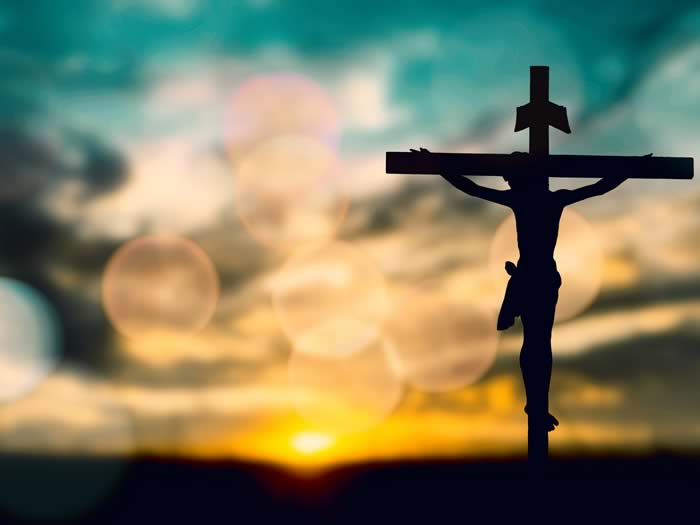Ezekiel 37:1-14
John 11:1-45
When Jesus saw her weeping and the Jews who came with her were also weeping, he was greatly disturbed in spirit and deeply moved. (Jn11:33)
Both biblical stories are about power, power kindled by faith but power direct from God: a dynamic that penetrates normality – death is death and bones are all that’s left of what were once human lives.
That’s how things are. But here the mystery and historical mist that surrounds the ancient Jewish prophecy and the more sophisticated theologising of John’s gospel meet and say together– God can do what humans can’t. And we would want to agree with that he does: occasionally in life (perhaps in your life) – more frequently in the scripture stories. And the resurrection of the crucified Jesus that after the long six weeks of Lent we shall celebrate, authenticates that.
I want to suggest to you that that’s not however the place where we build our faith – in the expectation of miracle, but instead in the experience of normality. Religion has its origin in the awe of the unknown and in the fear or hope of the intervention of the gods.
That primitive bit of us never goes away – hence the fascination for some people of myth and legend and the fabricated myths of Tolkein and more recent novelists that fill the shelves of bookshops and the digital brilliance of films that have helped to revitalise cinema. What I see as distinctive of Christianity – and its there too in Judaism and Islam – is that the ordinary becomes holy and so for us, faith in the ways of Jesus is not a way to escape from ordinariness but to honour, explore and sanctify it. The resurrection of Jesus is an affirmation of this-worldly religion. The breaking of bread at Emmaus -: ‘and they knew him’, and we might add, always will whenever we break bread and remember him.
‘What was the sermon about this morning?’ says Aunt Agnes – unable these days because of frailty to go to church anymore, as she tucks into the roast beef and Yorkshire pudding with the zeal of someone who hasn’t done the cooking herself.
‘Well’ says her long suffering niece, wondering if she has made enough gravy, ‘the preacher said he didn’t believe in miracles’. A protest from the said preacher – I’m not saying that. Only absolute secularists like the formidable Richard Dawkins and the late Christopher Hitchens, say that, and even they and others like them would admit that there are areas where the long arm of science still cannot reach (but will one day, they insist).
I do believe in miracles but I don’t believe that that is how the faithful live, waiting for God to do his tricks and then being very disappointed that after earnest prayers for that to happen, there may be silence. A miracle though a mark of the ministry of Jesus people remembered in his life and after his death, is something that may happen to some people but to very, very few. And that was true of his day – the stories are there because they only happened now and then and because they were often remembered for something more important than the actual event… ‘No’ Jesus said to that invitation to turn stones into bread, and that was the tenor of his ministry it seems.
One of my very devoted church members had a sister whose husband had inoperable cancer. I went with them to one of the evangelical rallies being held by a popular evangelist, the husband by now too sick to go himself. ‘If you want healing for someone unable to be here’ said the evangelist,’ bring something belonging to them to the front and in touching it, God may touch their lives and heal them’. Prepared for this, the two women – out of love and faith – had brought one of the man’s handkerchiefs and went forward with it, and, naming him, God’s miraculous power was invoked by the evangelist, and they returned to their seats tearful but hopeful.
It wasn’t my world, and going in a hidden spirit of scepticism, I returned even surer that this was not my way of responding to the gospel. God is a mystery but I couldn’t see that he has set up things so that his acts of mercy can only be achieved in odd ways like this. I would have still felt that even if the husband had lived; but very soon he died, the two sisters perhaps feeling that at least they had done as much as they could possibly do to prevent the inevitable from happening, but left with unanswerable questions about the ways of God and our interpretation of them.
We live in a very different world than that of Jesus and his first friends. The whole context and content of human understanding has changed. The planet we live on we know isn’t flat, and is one of many and a mere speck in the ocean of constellations that fill outer space within and far beyond our sight. The development of life on earth is more likely to span five thousand million years, not the six days and a rest day for God as suggested in the foundation documents of Judaism and Christianity. The stars at night are not the ceiling of a universe made up of them up top, something like hell down below and we as lords of the earth between the two. Many of the biblical stories are filled with evocative truths about our humanity and about the search for a reality greater than ourselves. But the stuff of those stories belongs to another thought-world than the one we now live in. And the discipline of our discipleship as people of faith is to try and find dynamic connections between the two, being faithful to the models of faith we have received from our traditions, but also honouring the state of our present human knowledge.
It’s a discipline that some of us may be afraid of and we try to escape from it by holding to the old ways and ignoring contemporary knowledge. But if you can only believe by unknowing what otherwise we know to be scientifically true, you enter a fantasy world of supposed faith – which is injurious to your relationship with God and means you have no way of communicating faith to your neighbour who can no more be expected to move out of the real world to become Christian than you should expect of yourself. Somehow we have got to hold on to both worlds. It is the major test of our faith – to steep ourselves in the biblical world and then ruthlessly pull ourselves out of it.
This is not new.
We carry with us the feeling that until our modern scientific age, everything Christian was straightforward and easy. There it was in scripture, plain and simple and everyone agreed with what they read and sang. Preachers stood in pulpits and smiled at smiling congregations and spoke truths and everyone concurred with them. But faith has always had to be interpreted. From the very beginning there were, for example, at least three churches working hard at it from different perspectives. The Jamesian lot in Jerusalem, refusing to give up their Jewishness. And the Pauline lot, including gentiles and possibly later a Petrine lot finding its home in Rome. We are not breaking away from Christian practice – we are entering into it.
This is a test of our fellowship.
Most of us –all? – want to be ourselves, our lives a constant quest for true individuality. But many of us want also to be part of a community where we are valued and honoured. A corporate identity as well as a personal one. Both are difficult, the first perhaps most difficult of all. The first three hundred years of the church’s history involved attempts of determining the ‘us’. That’s why the Nicene and Apostles Creeds were worked out – after much wrangling – and then – let’s face it – imposed as iron-clad models of who were into the Christian way – and therefore also who were not.
Have we learned a little since then? In another age of absolutes – absolute indifference to faith and absolute scientific certainty, perhaps we can make a small contribution to lively faith – faith with doubts, faith with the excitement of searching and discovering, faith with tolerance of people who come to God in different ways to us.
This is the contemporary way of mission
Many church members carry with their devotion and belief, a sense of guilt. We are troubled at the rapid decline of church attendance, the growing gulf between believers in the traditional Christian message and people who utterly reject it, and we ask ourselves, ’is it our fault? And we vaguely feel we ought at do something about it – ‘preach the gospel unto the ends of the earth’? And not being at all sure of how to do that, we tend to leave it to the evangelical enthusiasts with a belief that people may be converted with words. I think I am saying this morning – O.K. many ways into the Kingdom, but the challenge is to find a new language and a new way to be the church and Christian human beings that discover God in the familiar not the phenomenal. And if that sounds uncomfortably general like a political election pitch – sorry, but that at least is where I think the debate about communicating faith has to begin.
When Jesus saw her weeping and the Jews who came with her were also weeping, he was greatly disturbed in spirit and deeply moved. (Jn11:33). The miracle that followed – Lazarus alive again – was remembered, but it all began with Jesus in tears; with the emotional commitment of the man who we have come to see as divine but whose connection with us is through our common humanity: his and ours, united in a conversation with God begun in his brief life, illuminated by sudden miraculous moments, expressed most terribly in his unspeakable suffering as he died, and most wonderfully and eternally in the blessedness of his resurrection.





